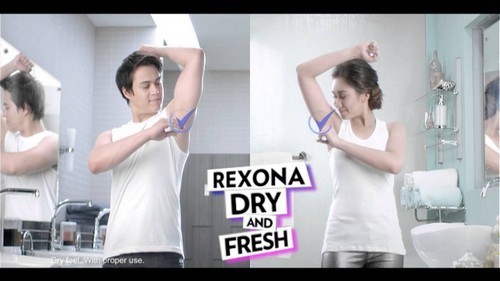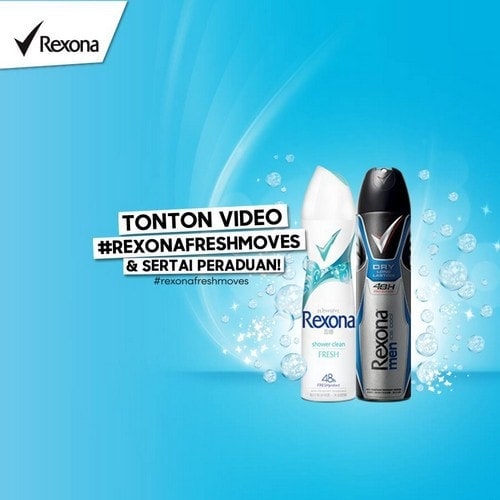Rexona is a brand of personal care products that was first introduced by Unilever for the Australian market. Currently, this product line is popular in around 115 countries across the world. Rexona is a popular brand of antiperspirant products and consist of soaps, roll-ons, deodorants and sprays for both men and women.
A market leader in antiperspirant products Rexona is sold under various other names in other geographies. Though in India and some other parts of Asia, Rexona is more popular as a soap, in most other parts of the world the brand has been sold as an antiperspirant deodorant and roll-on. The strong freshness of flavors and perfumes like lime and mind which is associated with the brand Rexona have given the products a very summery and cool feel. Rexona has also been popular for its association with various sporting events and the brand has been sponsoring many of them.
Table of Contents
Strengths in the SWOT analysis of Rexona
The following are the strengths of Rexona are:
- Same brand different names: Rexona has been sold in most countries across the world but in different names. In the UK it has been sold as Sure while in the USA and Canada it is called as Degree. Rexona has been sold as Rexena in Japan and Korea while in South Africa it is known as Shield. Whatever may be the name, the composition of the product is the same and the product is the market leader in the antiperspirants category.
- First 1 billion brands: Rexona was the first brand in the antiperspirant category to cross the 1 billion USD sales mark globally. The brand has also been registering consistent double-digit growth in all the markets that it is sold in for the past ten years.
- Association with Unilever: There is no name that can lock horns with Unilever in the fast moving consumer goods market and the company is an undisputed leader here. This strong presence is what has helped the brand Rexona grow its popularity in all the markets it is sold in.
- First mover advantage: The first Rexona deodorant was introduced in the year 1969 and the product introduced customers to the concept of using antiperspirants for the first time. Rexona is also one of the earliest brands to have adapted their portfolio to globalization when it took up numerous forms and names for various markets.
- Wide variety: Rexona has a wide variety of products under its portfolio and these include deodorants for men and women, body sprays, antiperspirant roll-ons, soaps, and perfumes. Some of their popular variants include Wome Aloe Vera Deodorant, Women Whitening Deodorant, Rexona Soap, Rexona Sport for Men, Rexona Men Sports Defence Roll on etc.
Weaknesses in the SWOT analysis of Rexona
Weaknesses are used to refer to areas where the business or the brand needs improvement. Some of the key weaknesses of Rexona are :
- Low product awareness: Unilever has been focusing on reaching out to customers in rural markets in emerging economies. Though they have been successful in the logistics part as well as in most other product categories, in the personal hygiene segment especially in antiperspirants, customers were unable to understand the need for such a product which affected its sales.
- Competition from internal brands: Unilever has a lot of internal brands though not directly competing in the antiperspirants space. Some brands like Lux or Dove which had an established presence in the soaps category could easily get customers in the antiperspirant space which affected Rexona’s business and reduced the market share of the brand.
- Marketing the concept: Antiperspirants deal with a problem of sweat and body odor which most people suffer from but are uncomfortable discussing about issues like these since they are extremely private. Thus in order to send marketing messages the company was finding it difficult especially because people were not open to acknowledging in public that they had problems like body odour.
Opportunities in the SWOT analysis of Rexona
Opportunities refer to those avenues in the environment that surrounds the business on which it can capitalize to increase its returns. Some of the opportunities include :
- Scope for diversification: FMCG companies has been looking for the scope for diversification and companies like Rexona need to think beyond antiperspirant. They can look at other related issues like hair care products for dandruff, itchy scalp, prickly heat powder for kids etc. These can all prove to be new opportunities for the company.
Threats in the SWOT analysis of Rexona
Threats are those factors in the environment which can be detrimental to the growth of the business. Some of the threats include:
- Competition: Rexona faces a lot of competition from brands like Lux, Dove, Yardley, Axe etc.
- Usage of chemicals: There are allegations that companies like Unilever use a lot of chemicals in their products. Customers are apprehensive about the high chemical content in such products and are preferring to replace them with ayurvedic products.
Liked this post? Check out the complete series on SWOT

